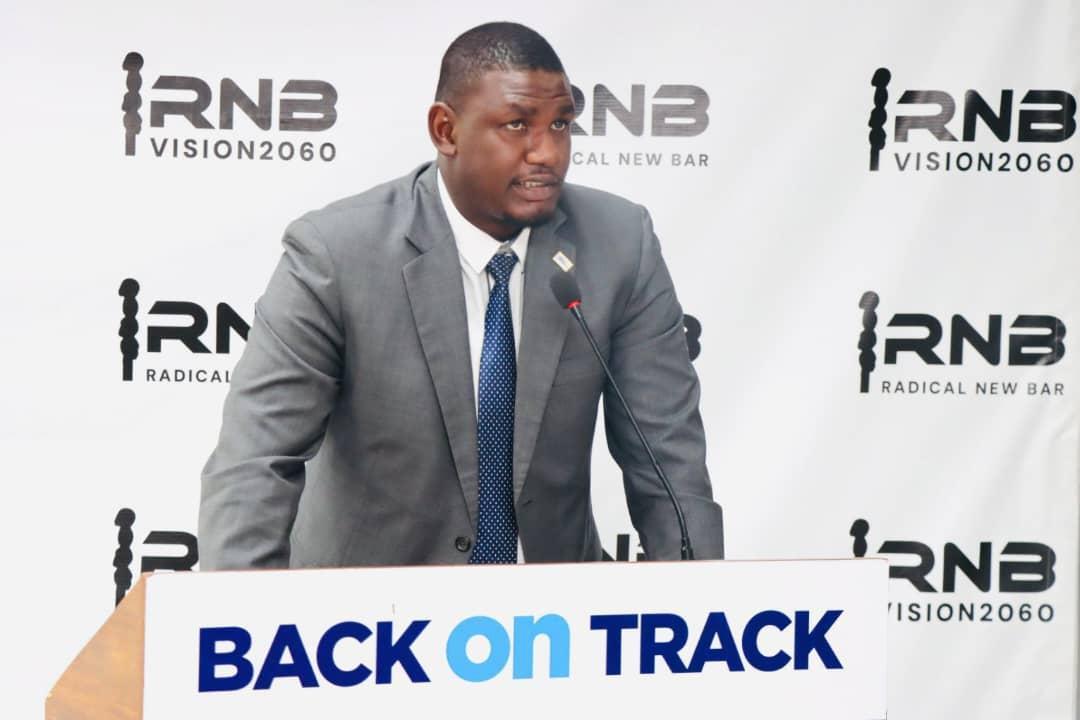Africa-Press – Uganda. The Uganda Law Society (ULS) has condemned the newly passed UPDF Amendment Bill, describing it as a blatant attack on the rule of law and the independence of the judiciary, and has announced plans to challenge it in the Constitutional Court.
Speaking during a press briefing hosted by the Radical Bar, ULS Treasurer Arthur Isiko said the Bill, which grants the military broader powers to try civilians in army courts, was rushed through Parliament without meaningful consultation and in defiance of existing constitutional precedent.
“This Act is a coup on the judiciary,” Isiko said. “It is the judiciary’s mandate to administer justice. Security operatives and government actors cannot rewrite the law to suit their agenda.”
The law, which was passed last week, introduces a new Section 117(a) into the UPDF Act, enabling the General Court Martial to try civilians accused of war-related crimes.
The Uganda Law Society argues that this provision violates the landmark Supreme Court judgment in Kabaziguruka vs Attorney General, which held that trying civilians in military courts is unconstitutional.
“It goes directly against the Kabaziguruka ruling,” Isiko said.
“Once a matter has been resolved by the highest court, Parliament must not legislate in reverse just to accommodate temporary conveniences.”
ULS Vice President Anthony Asiimwe said the Bill represents a broader pattern of shrinking civic space and disregard for legal norms.
“We will not allow this law to stand,” Asiimwe said. “We are preparing a constitutional petition and we shall see this challenge through. Uganda’s Constitution is clear — no one is above the law. Military courts cannot be used to intimidate civilians.”
ULS also faulted government officials for what they described as bad faith during the legislative process, claiming the legal fraternity was deliberately excluded from discussions.
“They sent us an invitation to the consultation just ten minutes before the meeting started,” said Isiko. “That was not an accident. It was clearly meant to fail us.”
Beyond legal objections, ULS expressed concern over rising incidents of arbitrary arrests and disappearances, including the recent detention of lawyer Hassan Mudyobole.
“Security forces must stop operating like they are above the law,” Isiko said.
“To this day, we don’t know where our colleague Mudyobole was held or what laws were followed in his detention. That’s unacceptable in a constitutional democracy.”
The new law was championed by Speaker Anita Among, who cited historical insecurity in Teso and the need to bring armed criminals to justice.
While addressing NRM delegates in Bukedea, Speaker Among said the legislation would benefit victims of cattle rustling and insurgencies, promising that Bukedea would be among the first to reap its benefits.
However, ULS argues that this logic is flawed and politically expedient, warning that allowing military courts to try civilians opens a dangerous precedent for repression and abuse of process.
“There is no justification for dragging civilians into a system that lacks independence and transparency,” Asiimwe said. “Let the military courts handle soldiers. Civilians belong in civilian courts.”
The Uganda Law Society has called on civil society groups and the public to reject what it called an “erosion of constitutionalism,” and is mobilising legal resources to file the challenge in the coming days.
For More News And Analysis About Uganda Follow Africa-Press






